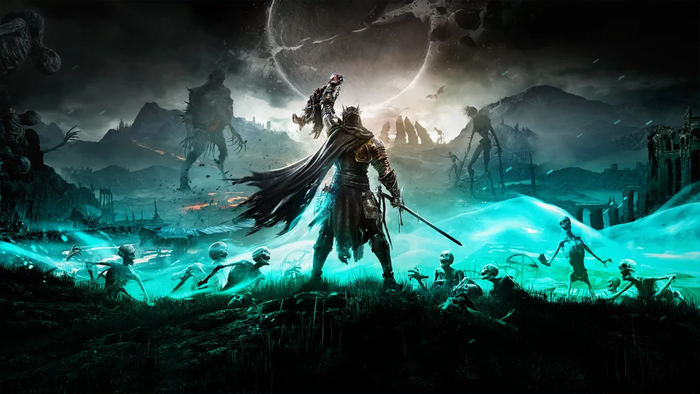Interview: Stardock's Brad Wardell On Taking Impulse: Reactor Free-To-Play
Stardock founder and CEO Brad Wardell says the writing is on the wall for the $60 PC game, which is why his company is adding more free-to-play-focused features to their Impulse: Reactor middleware.

The writing is on the wall for the $60 PC game, and Stardock founder and CEO Brad Wardell says he has read that writing loud and clear. That's why his company is today announcing a new set of free-to-play-focused features for their Impulse: Reactor middleware. “The idea is that the PC game market is slowly moving over to a model that is more akin to what you're seeing on mobile device, which are much less expensive,” Wardell said in an interview with Gamasutra. “In an age where you're used to spending only five, six bucks for a game, it's really hard to go back to the PC and pay 60 bucks for a game, especially if it's becoming increasingly loaded with features and content you'll never make use of.” It's a somewhat surprising admission for Wardell, who has made his name with retail-priced PC strategy games like the Galactic Civilizations series and Sins of a Solar Empire. But he now says these types of games will slowly start to become less of a factor in the PC market if things don't change. The new Impulse: Reactor SDK beta, which is planned for a March rollout and is separate from Stardock's Impulse digital storefront, will cater to lower cost and free games by allowing developers to add microtransaction-based content as easily as they add in-game achievements, Wardell said. In fact, the two content types can actually be easily mixed together. “Because the developer controls the pricing from the web... what this means is that the developer inside the game can do all sorts of things to [motivate] the player,” he said. “They can have their own little point system to give discounts on things or achieve something, they could unlock or make a certain thing free. … We want to make it so that the game developer themselves can convey this however they want to instead of having this pushed on them by an e-commerce solution.” Stardock will take a standard 30 percent share of all digital purchases made through Impulse: Reactor games, Wardell said, but their role can be made totally invisible to the player through game-specific skins that integrate the store into the game seamlessly. The company's own games will be taking advantage of these new features in the future, and Wardell says he wishes he could have used it in some previous releases. “If I had to do it over again, I would have made multiplayer and other features premium features [in earlier games],” he said. “I'd rather lower the price of our titles and then have these features that most people don't care about be something they can buy extra. … I'd rather make a game for $20, $30, $40 bucks, and then make multiplayer something that people can pay for if they want that feature. That way people don't have to subsidize something they don't want and will never use.” Outflanking Steam Unlike Valve's SteamWorks middleware, games that use Impulse: Reactor don't require players to download an associated store client before playing. Wardell admits that such a store-bundling system would no doubt fail for Stardock, because Valve would just refuse to carry games that required Impulse installation. Developers would therefore avoid Impulse: Reactor to maintain access to Steam's much larger market of players. Not that Wardell begrudges Vale their dominance or their business model. He says he soothes himself with a simple thought: “All such dominance is fleeting.” “I remember everyone was using MySpace... and people forget Friendster before MySpace,” Wardell said. “I don't personally see anything in the near term that's gonna change the status quo [regarding Steam], I've just been around long enough to see the mighty fall over and over again. I remember when Microsoft were considered gods and they could do no wrong. Now people are syaing Microsoft might have a store and nobody cares, whereas five years ago everybody would care.” In fact, Wardell indicated that Impulse: Reactor's new free-to-play focus is partly their way of ensuring they're well-positioned when Steam eventually does falter. “What happens isn't that the companies do something stupid, what happens is the market changes,” Wardell explained. “The company gets entrenched in their business model and suddenly the way they're doing thing isn't as relevant.” “Let's say free-to-play takes off,” he continued. “What happens to Direct2Drive in that scenario, or any of the traditional web stores that exist? There's no point, there's nothing to buy. Who knows what the model is? … Once everything's online and nothing's at a store, all bets are off. Who knows how the market is gonna get compensated five years from now.” Returning And Reselling Digital Games Aside from the new Impulse: Reactor features, Stardock recently announced a streamlining of their longstanding Gamers Bill of Rights, which lays out a system of protections against overly restrictive copy-protection and licensing schemes. The newly streamlined Bill of Rights boils things down to a simple general rule, Wardell said: “If you buy a PC game that doesn't work for you, you should be able to return it.” The changes came, Wardell said, when the company realized that a major indie hit like Minecraft actually didn't live up to the original Bill of Rights' strict rules. “How can you argue that there's something wrong with the way Minecraft does things?” he asked rhetorically. “He's sold something like a million copies of this beta, and you have to log in to play the game, and you don't see people screaming about that. It makes the Gamers Bill of Rights seem a little sanctimonious.” Not only is adhering to the Bill of Rights policy a good ethical move, Wardell said, but it's also good business. “There's too much risk as a PC gamer buying a game, and that's one of the big reasons people buy consoles,” he argues, citing friends who bought Oblivion on a console simply because they were sure that version would work correctly. “It wouldn't be such a big deal if they could return the [digital PC] game, but right now what would happen is you'd buy it … and it doesn't work, you're just out of luck, too bad.” Ideally, Wardell said he'd like PC gamers to be able to further mitigate their risk of buying a digital download by having the option to resell their digital purchase to another player. In fact, Impulse already lets developers allow their consumers that exact freedom, he says. The only problem is, no developer seems to want to support the feature. “The problem is, in order to make it work, you have to have the user go on the internet every time they play the game,” Wardell said. “If you do that right now, the gamers will go on your Amazon or something and just flame you. But you have to have that... there's no way to have a transferable license without that.” Despite this, Wardell sees the idea of transferable digital licenses as inevitable, especially once persistent internet access becomes truly ubiquitous for all computers. But that doesn't mean developers and publishers are going to be cut out of the market, like they are in second-hand retail. “I suspect [digital resale] will occur through an Impulse or a Steam, it won't be like eBay or whatever,” he said. “You might go to a Gamestop and transfer your license, but it'll be a transfer thing where everyone involved gets a piece.”
About the Author(s)
You May Also Like







.png?width=300&auto=webp&quality=80&disable=upscale)





